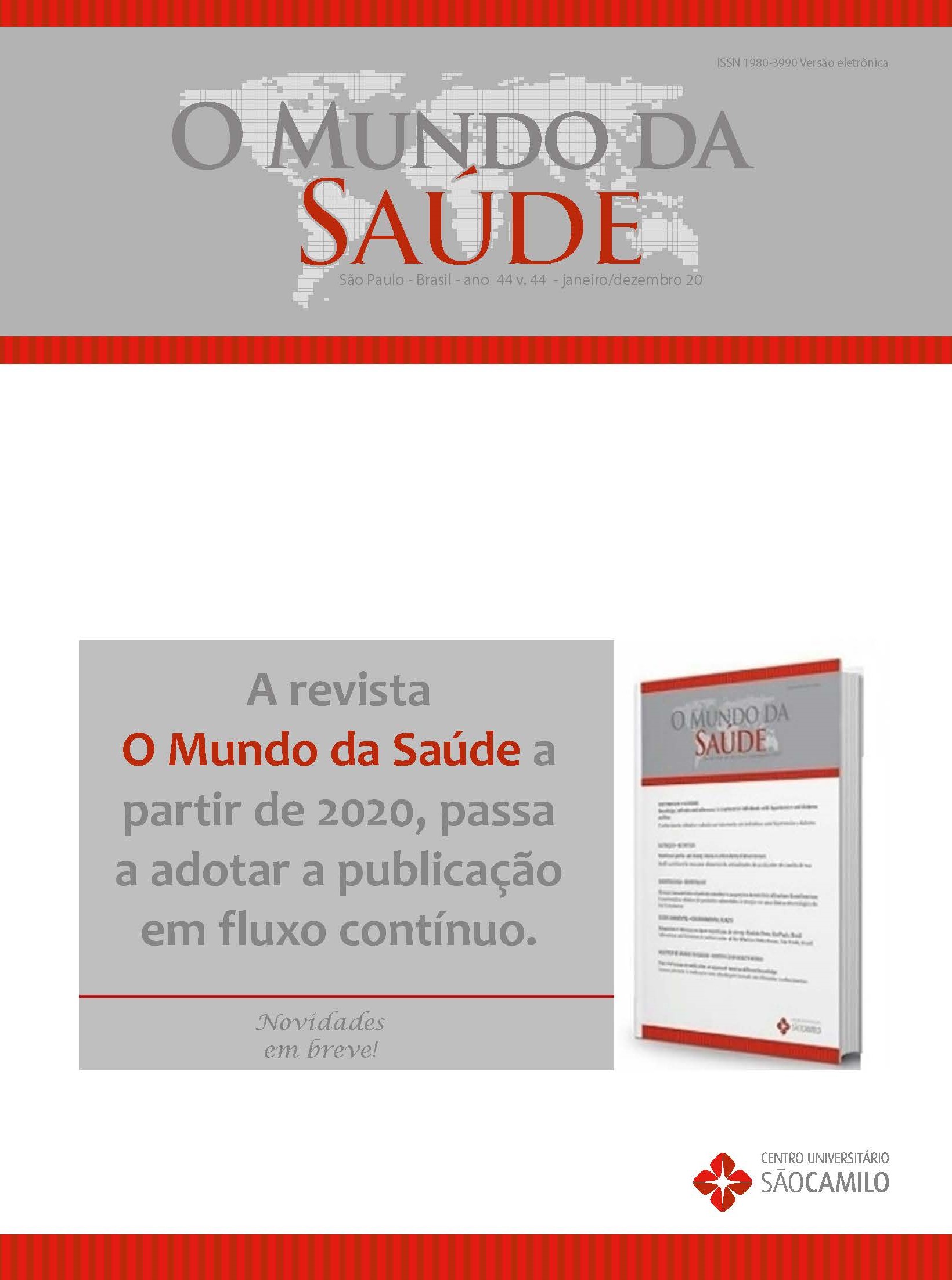Medication errors in pediatrics: Evaluation of spontaneous reports in a pediatric hospital in Porto Alegre, RS, Brazil
DOI:
https://doi.org/10.15343/0104-7809.202044068075Keywords:
Medication Errors, Patient Safety, PediatricsAbstract
This study aimed to quantify medication errors spontaneously reported by professionals working in a pediatric hospital. This
was a quantitative and retrospective study carried out in a philanthropic, teaching pediatric hospital, with a total of 184 beds,
of which 144 are inpatient beds and 40 are ICU beds. Adverse event data recorded on a form available on the institutional
intranet from January 1, 2015 to December 31, 2018 were collected. 471 events related to medication errors were recorded.
The incorrect dose with the highest number of notifications in the years 2016, 2017 and 2018 (22.4%, 26.2% and 24%
consecutively) stood out. In 2015 the largest number of notified events was related to the omission of dose or medication
(20.8%). Dose errors were grouped into three distinct subclasses: overdose, underdose and extra dose. Doses higher than
recommended are highlighted in all evaluated years, with rates above 70% of notifications. Highly supervised drugs,
antimicrobials, controlled drugs and chemotherapy were the most frequently reported. The quantification of medication
errors reported in pediatrics was essential to know their profile and focus on actions to improve processes. Educational
actions motivating the registration of notifications by all professionals are essential to strengthen the culture of patient safety.
Downloads
References
Goiânia: Editora UFG; 2017.
2. Hug BL, Keohane C, Seger DL, Yoon C, David W. The costs of adverse drug events in community hospitals. Joint Commission
Journal on Quality and Patient Safety. 2012;38 (3): 120-126.
3. Keers RN, Williams SD, Cooke J, Ashcroft DM. Prevalence and nature of medication administration errors in health care settings:
A systematic Review of direct observational evidence. Annals of Pharmacotherapy. 2013. 47(2), 237–256.
4. Volpatto B, Wegner W, Gerhardt L, Pedro E, Cruz S, Bandeira L. Erros de medicação em pediatria e estratégias de prevenção:
Revisão integrativa. Cogitare Enfermagem. 2017. 22(1).
5. Mastroianni P, Varallo FR. Farmacovigilância para promoção de uso correto de medicamentos. Porto Alegre: Artmed, 2013.
6. Bohomol E, Oliveira CB. Conhecimento da equipe de enfermagem sobre erros de medicação: Estudo survey descritivo. Enfermagem
em foco. 2018;9(1):44–8.
7. Benjamin L, Frush K, Shaw K, Shook JE, Snow SK. Pediatric medication safety in the emergency department. Pediatrics. 2018.
34(4):375–7.
8. Labib JR, Youssef MRL, El Fatah SAMl. High alert medications administration errors in neonatal intensive care unit: A pediatric
tertiary hospital experience. Turkish Journal of Pediatrics. 2018. 60(3):277.
9. Sears K, O’Brien-Pallas L, Stevens B, G, Murphy GT. The relationship between the nursing work environment and the occurrence
of reported paediatric. Journal of Pediatric Nursing. 2016. 31(4):283–90.
10. Salmani N, Tafti BF. Frequency, type and causes of medication errors in pediatric wards of hospitals in Yazd, the central of Iran.
International Journal of Pediatrics. 2016. 4(33):3475–87.
11. Siman AG, Cunha SGS, Brito MJM. The practice of reporting adverse events in a teaching hospital. Revista da Escola de
Enfermagem da USP. 2017. 51:1–8.
12. Aspden P, Wolcott J, Bootman JL, Cronenwett LR. Preventing medication errors. Washington: National Academies Press; 2007.
13. Brasil. Ministério da Saúde. Assistência farmacêutica em pediatria no Brasil: recomendações e estratégias para a ampliação da
oferta do acesso e do uso racional de medicamentos em crianças. Brasília-DF. 2017. 88 p.
14. Couto RC, Pedrosa TMG, Roberto BAD, Daibert PB. Anuário da segurança assistencial hospitalar no Brasil. Belo Horizonte:
Faculdade de Medicina UFMG; 2017.
15. Medication Without Harm - Global Patient Safety Challenge on Medication Safety. Geneva: World Health Organization, 2017.
16. National Coordinating Council for Medication Error Reporting and Prevention, USA.
NCC MERP Taxonomy of Medication Errors. 1998.
17. Bertsche T, Niemann D, Mayer Y, Ingram K, Hoppe-Tichy T, Haefeli WE. Prioritising the prevention of medication handling
errors. Pharmacy world and science. 2008. 30(6):907–15.
18. Richey RH, Hughes C, Craig J V., Shah UU, Ford JL, Barker CE, et al. A systematic review of the use of dosage form manipulation
to obtain required doses to inform use of manipulation in paediatric practice. International journal of pharmaceutics. 2017. 518
(1–2):155–66.
19. Eshetie TC, Hailemeskel B, Mekonnen N, Paulos G, Mekonnen AB, Girma T. Adverse drug events in hospitalized children atEthiopian University Hospital: A prospective observational study. BMC Pediatrics. 2015. 15 (1): 83.
20. Miyake L, Matsubara D, Comarella L. Relação entre o uso seguro de medicamentos e Serviços de Farmácia Clínica em Unidades
de Cuidados Intensivos Pediátricos. Revista Paulista de Pediatria. 2016. 34(4):397–402.
21. Tripathi S, Crabtree HM, Fryer KR, Graner KK, Arteaga GM. Impact of Clinical Pharmacist on the Pediatric Intensive Care Practice:
An 11-Year Tertiary Center Experience.
Journal of pediatric pharmacy practice. 2015. 20(4): 290–298.
22. Yamamoto MS, Peterlini MAS, Bohomol E. Spontaneous reporting of medication errors in pediatric university hospital. Acta
paulista de enfermagem. 2011. 24(6):766–71.
23. Bataille J, Prot-Labarthe S, Bourdon O, Joret P, Brion F, Hartmann JF. High-alert medications in a French paediatric university
hospital. Journal of Evaluation in Clinical Practice. 2015. 21(2):262–70.
24. Niemann D, Bertsche A, Meyrath D, Koepf ED, Traiser C, Seebald K, et al. A prospective three-step intervention study to prevent
medication errors in drug handling in paediatric care. Journal of Clinical Nursing. 2015. 24(1–2):101–14.
25. CorbelliniI VL, SchillingI MCL, Frantz SF, Godinho TG, Urbanetto J de S. Medication-related adverse events: percepception of
nursing aides. Brazilian Journal of Nursing. 2011. 64(2):241–7.
26. Duarte S da CM, Stipp MAC, Silva MM, Oliveira FT. Adverse events and safety in nursing care. Revista brasileira de enfermagem
2015;68(1):144–54.
27. Pena MM, Braga AT, Gomiero L, Vassao C, Melleiro MM. Mapping of medication errors at a university hospital. UERJ Nursing
Journal. 2016. 24(3):1–6.






























